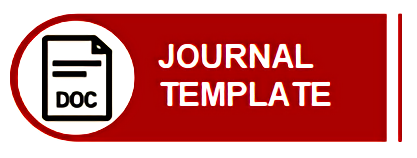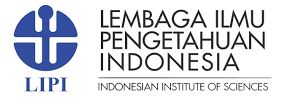Deregulating the Nomination Threshold for Regional Head Elections and Local Oligarchy
Abstract
In the midst of political deadlock due to cartel and oligarchic practices, the Constitutional Court then made a breakthrough with the passing of Decision No. 60/PUU-XXII/2024 which changed the nomination threshold formula from a percentage of seats to a range of 6.5% to 10% adjusted to the number of Permanent Voter Lists in an electoral district. The breakthrough of the Constitutional Court made democracy in the regions return to bagkit, someone who used to have difficulty can now appear easily. The purpose of this article is to explain the regulative obstacles to the development of democratic elections and the implications of the Constitutional Court Decision No. 60 for efforts to build democratic elections. This research uses a normative approach. The results of the study found that the expansion of the meaning of elections by the Constitutional Court to include regional elections is something constitutional, because through Decision No. 55/PUU-XVII/2019 the Constitutional Court has laid an important foundation for the design of the model for organizing simultaneous elections. This has implications for the circulation of government in the regions, which previously could not be proposed by regional head candidates to be proposed. Previous provisions related to the nomination threshold are too heavy for minority political parties that do not have seats now allow regional head candidates to compete.
___
References
Books with an author:
Dahl, R. A. (1988). On Democracy, London: Yale University.
Nakamura, R. T., & Smallwood, F. (1980). The Politics of Policy Implementation, New York: St. Martin’s Press.
Varma, S. P. (1975). Teori Politik Modern, Jakarta: Raja Grafindo Persada.
Journal articles:
Anwar, M. S., Sari, R., & Satrio, N. (2024). Sistem Penunjukan Penjabat Kepala Daerah dalam Perspektif Teori Pengisian Jabatan. Jurnal Hukum In Concreto, 3(1), 72-84. https://doi.org/10.35960/inconcreto.v3i1.1362
Gunanto, D., Hijri, Y. S., & Nurhasanah, P. H. (2024). Dinamika Koalisi Partai Politik dalam Pencalonan Presiden dan Wakil Presiden pada PEMILU 2024. Sawala: Jurnal Administrasi Negara, 12(1), 57-67. https://doi.org/10.30656/sawala.v12i1.8528
Imran, I. (2012). Pengisian Jabatan Gubernur Di Indonesia (Solusi Alternatif). Fiat Justisia: Jurnal Ilmu Hukum, 6(1). https://doi.org/10.25041/fiatjustisia.v6no1.348
Kasim, A., & Heridah, A. (2020). The Region Governance Review of Barru Regency to Actualize Good and Clean Governments. Amsir Law Journal, 1(2), 61-69. https://doi.org/10.36746/alj.v1i2.25
Kasim, A., & Heridah, A. (2022). Bentuk Pelibatan Masyarakat Dalam Melakukan Pengawasan Terhadap Pelaksanaan Pemilihan Bupati dan Wakil Bupati. Jurnal Litigasi Amsir, 9(3), 237-244. http://journalstih.amsir.ac.id/index.php/julia/article/view/105
Kurman, A. S. D., Yohanes, S., & Udju, H. R. (2024). Pengaturan Pemungutan Suara Elektronik dalam Mewujudkan Pemilu yang Langsung, Umum, Bebas, Rahasia, Jujur dan Adil di Indonesia. Doktrin: Jurnal Dunia Ilmu Hukum dan Politik, 2(4), 64-84. https://doi.org/10.59581/doktrin.v2i4.4030
Lestari, Y. S. (2017). Kartel politik dan korupsi politik di Indonesia. Pandecta Research Law Journal, 12(1), 67-75. https://doi.org/10.15294/pandecta.v12i1.7820
Mahendra, Y., & Bima, M. R. (2022). Implikasi Hukum Pencalonan Calon Perseorangan dalam Pemilihan Kepala Daerah. Journal of Lex Generalis (JLG), 3(11), 1807-1826. http://mail.pasca-umi.ac.id/index.php/jlg/article/view/1248
Noors, A. I. A. (2019). Pengarusutamaan Manajemen Talenta Dalam Tata Kelola Msdm Birokrasi Indonesia. Jurnal Ilmu Pemerintahan Suara Khatulistiwa, 4(2), 38-49. http://ejournal.ipdn.ac.id/khatulistiwa/article/view/721
Purwanda, S., & Wulandari, A. S. R. (2023). Socio-Legal Studies: Methodical Implications of Legal Development in Indonesia. Al-'Adl, 16(2), 152-163. http://dx.doi.org/10.31332/aladl.v16i2.6129
Raihan, M., & Nasution, A. I. (2022). Beban Mahkamah Konstitusi Dalam Memutus Perselisihan Tentang Hasil Pemilihan Umum Serentak 2024. DIVERSI: Jurnal Hukum, 8(2), 304-332. https://doi.org/10.32503/diversi.v8i2.3024
Rajab, A. (2020). Apakah Pasca Putusan MK Nomor 55/PUU-XVII/2019 Pilkada Rezim Pemilu. Jurnal RechtsVinding Online, Mei. https://rechtsvinding.bphn.go.id/jurnal_online/MENJAWAB%20PERSOALAN%20REZIM%20PILKADA.pdf
Setiawan, A. H. (2023). Politik Hukum Presidential Threshold 20% Dalam Undang-Undang Nomor 7 Tahun 2017. Japhtn-Han, 2(1), 169-186. https://doi.org/10.55292/japhtnhan.v2i1.64
World Wide Web:
Perludem. (2016). Siaran Pers: Prospek Pemerintahan Hasil Pilkada Serentak 2015Siaran Pers: Prospek Pemerintahan Hasil Pilkada Serentak 2015. Available online from: https://perludem.org/2016/02/29/siaran-pers-prospek-pemerintahan-hasil-pilkada-serentak-2015siaran-pers-prospek-pemerintahan-hasil-pilkada-serentak-2015/ .






1.png)






.png)

















